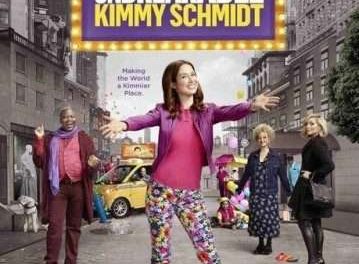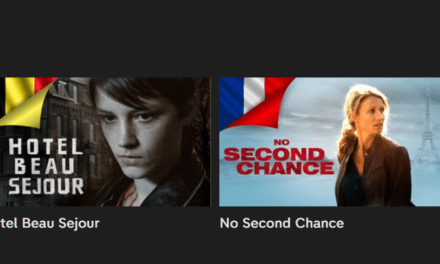With recent debates and discussions surrounding the government’s Green Paper and the BBC’s Charter review (how the BBC should be funded; whether it distorts the market; if it should be self-regulated; and so on.) I have found it quite easy to become lost in arbitrary and abstract notions such as “value for money” based on my naturally biased consumption of BBC products and services.
For example, I’m not the biggest fan of Doctor Who. (Gasp!) The slightest mention of “family entertainment” usually sends a chill down my spine. For me, that special category largely represents a compromised hodgepodge of spectacular nonsense; but that was my opinion, and I hadn’t even watched Doctor Who properly in years.
Earlier this year, I was teaching a class on the BBC’s public remit – specifically: “the promotion of its Public Purposes through the provision of output which consists of information, education and entertainment” (Broadcasting: Copy of Royal Charter 3) – and I was drawn into considering just how a prime-time, flagship show such as Doctor Who aimed to meet these criteria.
Granted, it doesn’t have to possess a royal flush of outcomes, but a show that has run for as long as Doctor Who must surely be more than pure ‘entertainment’ to justify its popularity across all age-groups and its (occasionally wavering) position in the BBC schedule?
So, mindful of the bleak BBC budget cuts on the horizon, I went to find out how Doctor Who engaged with the other aspects of the BBC remit: to educate and inform. After all, if the government makes the same knee-jerk reactions that I do, then what else might we be losing other than an hour of weekly entertainment?
Although it might be entirely lost on modern audiences, it has been well documented how when Sydney Newman, the new Head of Drama for the BBC in 1962, helped create Doctor Who, he wanted each story to have a “strong informational core based on fact” (Inside the Tardis 19-20); preferred to have regular teachers and students as leading figures because “no-one would need to teach a group of scientists anything” (Doctor Who: Origins); and had an edict that “there would be no bug-eyed monsters” (“Newman at the BBC!” 52).
By the second episode, Producer Verity Lambert had introduced the Daleks, making old bug-eyes the ennemi du jour. Along the line, other changes were implemented. The show largely replaced it’s ‘pure historical’ stories such as Marco Polo (1.4) with ‘pseudo-historical’ fantasies such as Deep Breath (34.1) – which features a time-travelling dinosaur in Victorian England; and it quickly substituted the studious sidekicks for sexier, more athletic models (although teachers are currently in vogue again).
On the face of it then, Doctor Who had moved beyond its origins and its own original remit set forth by Newman: to “reflect contemporary society” and to have a “high education content” (In Their Own Words 6).
Yet, myself and others would argue that the show successfully reflects shifting pedagogical practices and in doing so, may fulfill aims and objectives that both the BBC and the government might agree would constitute “value for money” – whatever that might mean.
For example, in addition to making people hide behind sofas, the Daleks have also been congratulated as being “educational in a subtle way”, because they “showed the dangers of war, pacifism and racial hatred” (The Doctor: His Lives 27). As Tom Steward has also put it: “Doctor Who continued to teach history and science through fantasy and arguably delivered a better quality of education by doing so,” as it moved the “emphasis away from facts and information and on to villains and monsters, compelling viewers to find out about the history independently” (“Time Monsters and Space Museums”).
Furthermore, the television show represents only the tip of the educational iceberg (There must be a better Doctor Who metaphor here). Students have spoken to me about when they watched The Shakespeare Code (29.3) to learn about the Globe Theatre, or when they used a remote controlled Dalek in a classroom to practically engage with the science of friction. These lessons could have been inspired by BBC Schools (1957-present) and the BBC Learning Zone (1995-present) which became a part of the BBC’s increased “focus on the pedagogic content of digital content” (“Learning with the Doctor” 137-138).
The 2006 Charter review incorporated digital services within its purview, so with the relaunch of Doctor Who taking place in mid-2005, the two orbits naturally aligned. Since then, BBC’s Bitesize – a free online study support resource – has generated an incredible amount of Doctor Who educational content, ranging from scene analysis with actors, through to interactive ‘making of’ videos.
BBC Schools also offer Teacher’s Packs tied into several areas of the National Curriculum. Covering subjects such as Literacy and History – areas that Newman thought had been abandoned within the show – students are encouraged to write their own scripts or take part in interactive games about the gunpowder plot.
This type of self-directed, transmedial learning, tangential to Doctor Who: the show, but crucial to Doctor Who: the educational franchise, is incredibly valuable. Although video games might appear to be a purely ancillary type of brand awareness, Elizabeth Evans’ fascinating examination of the pedagogic strategies employed behind the Doctor Who: The Adventure games found evidence of sophisticated “Narrative” (understanding the story), “Found” (gathering information), and “Ambient” (background or accumulated) learning taking place (“Learning with the Doctor” 146).
In being separated from the television show, digital and analogue educational content can engage more with the appropriate target audience without alienating the average Doctor Who viewer; but they are still heavily reliant upon each other in terms of promotion and sustainability.
And this is before we even look at national exhibitions held by the BFI and National Media Museum; television documentaries hosted by Professor Brian Cox; other tie-in videogames such as Minecraft and Lego Dimensions; the proliferation of academic courses and conferences; and the BBC’s current Make it Digital campaign – using Daleks as a tool to teach the basics of coding.
While my discoveries may not help me to like the show any more than I previously had (I gave it another chance, but don’t get me started on Capaldi and those bloody sunglasses); I believe I have a greater real-world understanding of how the BBC tries to meet the aims of the Charter in a series of complex and diversified ways that stretch far beyond initial impressions, abstract ideas and failed IT systems. I hope that as the government looks more closely at the evolving role and function of the BBC, they will do the same.
Carl Wilson is a freelance writer based in Sheffield, England. His full exploration of the relationship between Doctor Who and education will appear in the essay ‘Who Teaches the Daleks?: Doctor Who and Fulfilling the BBC’s Remit for Educational Programming’ for an upcoming edited collection on Doctor Whofrom PopMatters.





